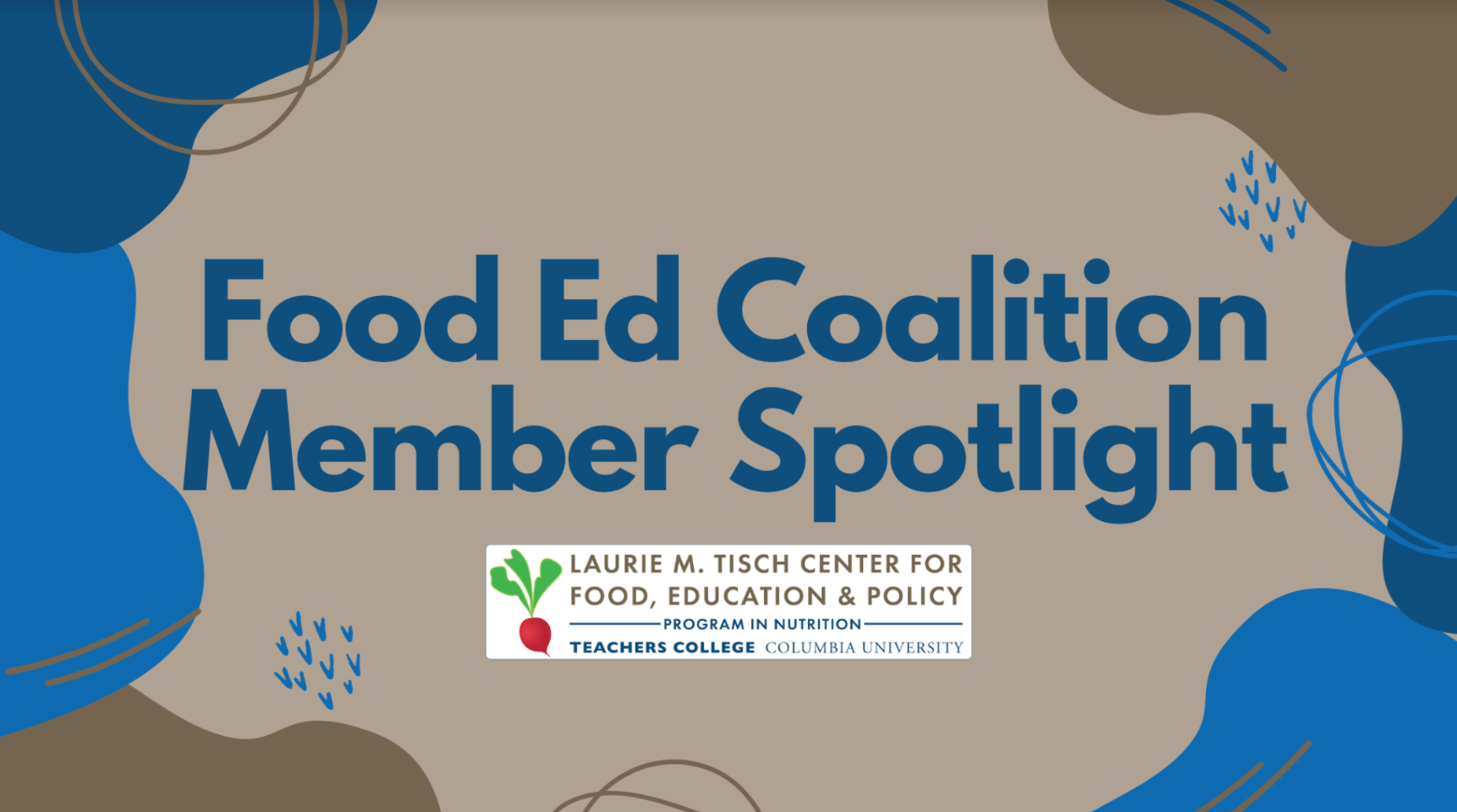The Food Ed Coalition Spotlight Series highlights people and organizations doing amazing work in food education and access in NYC. Find more from the series on the Food Ed Hub.
Quotes have been edited for length and clarity.
For many of us who live, work or study in New York’s urban areas, rural health in New York State can get overlooked. In fact, New York State has extensive rural land, making up more than 86.6% of the state's land area,1 and approximately 7% of New York residents live in rural communities.2 Having recognized the numerous health disparities faced by rural communities, Hunger Solutions New York is committed to identifying unique challenges faced by rural schools and strives to maximize participation in Federal Nutrition Assistance Programs in rural areas.
With a background in social work, Jessica Pino-Goodspeed, Child Nutrition Programs Specialist at Hunger Solutions NY, is dedicated to improving access to federal Nutrition Assistance Programs for families and organizations or entities, like schools. The organization connects New Yorkers to the nutrition assistance they need from birth to the end of life.
When schools shuttered in March 2020, Jessica and her team quickly responded. They pivoted and framed their work based on remote learning and urgent needs.“What we did as an organization is helping people understand some nuances of program and policy,” she said, “For example, what are the meal pattern requirements under the Summer Food Service Program (SFSP) if they've never operated that program and how SFSP can be more beneficial than the Seamless Summer Option on feeding children from a cost perspective.”
Jessica highlighted their work on helping share best practices with rural New York schools. “We particularly saw challenges in having little or no public transportation in our rural communities,” she said. Transportation barriers affect distribution because some meal sites are “a lot more than a simple walk down the street.” Innovative meal service models were created to provide easy access for parents to receive meals. “Many schools are serving up to seven days of meals at a time which include 14 meals providing both lunch and breakfast in a week,” Jessica shared. A lot of schools saw great improvement in participation by reducing the frequency of meal service.
Jessica named amplified stigma as another challenge in rural school communities. Families hesitate to disclose household income on applications and kids develop a heightened sense of social awareness as they grow older, causing participation rates to decrease. Therefore, Jessica emphasized the importance of advocating for universal school meals to help end the stigma associated with school meals and ensure future generations don't experience childhood hunger.
“Because everyone knows everyone else and when you have these programs that are perceived as programs for low-income populations, it certainly creates barriers. I grew up and still live in a rural community and through the years I have seen kids who are eating school breakfast get off the bus before their peers and go through a separate door to go into the cafeteria, which can result in an ostracization of those children.” - Jessica Pino-Goodspeed, Child Nutrition Programs Specialist, Hunger Solutions New York
Hunger Solutions NY also has been hosting Zoom coffee chats that allow school nutrition directors and community advocates to discuss and learn best practice from colleagues. These coffee chats are unique because they are need-based, small, not a huge time-commitment, and connect people in an informal way. Speakers include directors who can answer specific questions and representatives from state agencies. These events address key challenges specific to rural school communities including facilitating program operations, hiring qualified staff, and working with a limited budget and time to attend conferences.
Follow @NewYorkHunger on twitter to learn about upcoming coffee chats and other events.
In terms of next steps, Hunger Solutions NY is working to get federal support to pass nationwide free school meals for children as an important piece of long-term recovery from the COVID-19 pandemic. As Jessica emphasized, “Low-income families should be at the table with small business and industry that has been really impacted”.
References
- Rural New York. NY State Senate. Published July 29, 2010. Accessed April 20, 2021. https://www.nysenate.gov/newsroom/articles/darrel-j-aubertine/rural-new-york
- Rural health for New York Introduction - Rural Health Information Hub. Accessed April 20, 2021. https://www.ruralhealthinfo.org/states/new-york
Cindy Zheng graduated from the Nutrition and Exercise Physiology Program at Teachers College, Columbia University in April 2021. She is interested in school-based nutrition education in rural China and passionate about building a healthy, sustainable and equitable food system.
